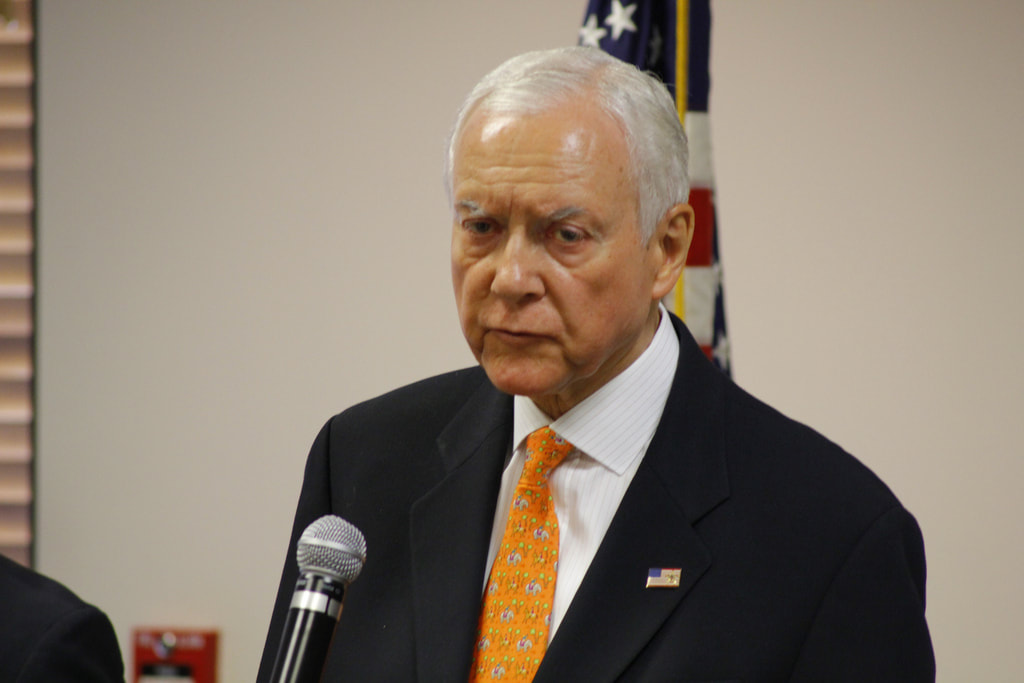| On the day Orrin Hatch first was elected to the Senate, I was preparing for a high school football game. I don’t remember what team we were playing, just that feeling I had that my senior season was ending and I probably wouldn’t strap on the pads ever again — that is, unless all those college recruiters had been given the wrong number for my house. That, and I was wishing our season record wasn’t almost certain to end 1-9. |
| | Oh, and I looked forward to getting together with friends after the game — you know, kid stuff. Politics, especially Utah politics, never entered my mind. I couldn’t vote. I was a 17-year-old living in Phoenix. When he won his second term, I was a bit closer to the action. I was the editor of BYU’s student newspaper, and I had sent student reporters to Salt Lake City to get comments from the Senator at the Republican victory celebration. I say this to add some perspective to Hatch’s Senate career, which he has announced will end early next year. I am not a young man. I have five grandchildren. But by the time I really hit adulthood, Hatch already was a seasoned lawmaker, and I now have spent more than 30 years covering him in various ways as a journalist. He is a conservative, but Hatch will never be associated with term limits. Through the years, I’ve observed that the best politicians have, in addition to a desire for public service, a strong ego and a keen instinct for survival. But they also have the instincts of a showman. Hatch has these in spades, and in ways that have surprised me at times. There was the day I came to his office in Washington and found him sitting at his desk, eating snacks and listening to music so loud we couldn’t hear each other. The music was from an album he had co-written. He once wrote and helped record a hip-hop Hanukah song, which instantly led to news stories around the country by reporters surprised that a grey-haired Mormon Senator from Utah would do such a thing. They no doubt felt the same way when he appeared briefly in the R-rated movie “Traffic,” and when he was in the TV show “Parks and Recreation.” He also wrote a love song for Democratic Sen. Ted Kennedy and his wife, Vickie. Kennedy said the song, which had its roots in Hatch’s efforts to help the liberal icon rebuild his personal life, made members of his family cry. He seemed to have a knack for catching both supporters and opponents a little off guard. Not long after I returned to Utah, after a brief career at newspapers in Oklahoma and Las Vegas, I found him campaigning for a third term in 1988 with the help of Muhammad Ali. Yes, that Muhammad Ali. The heavyweight champion, seldom cast as a conservative Republican, was walking around Salt Lake City making up rhymes about Hatch’s opponent, Brian Moss. “Tell Moss you’re the boss,” he told Hatch at a press conference. The story was that Hatch had helped one of Ali’s friends get a job in the Justice Department. Orrin Hatch has been many things for the last 42 years. He has pushed and passed meaty legislation — things that helped define American life in the 21st century. He has reached across the aisle to go where other conservatives wouldn’t dare. He has gone on quixotic crusades for constitutional amendments to ban flag burning and require a balanced budget. He also has pushed legislation without any help from Democrats, such as the recently passed tax reform law. And most recently he has forged an enthusiastic friendship with a president many Utahns support with little enthusiasm. But he has not been boring. He once regaled the editorial board with stories about how President Clinton invited him to the White House one night to give him an “Orrin Hatch for president” button to add to the president’s button collection. But even his enemies have to grudgingly agree about one thing. He used all those skills, including the timing of a showman, to forge a long career as an effective politician, the likes of which Utah will not see again for a while. Seniority and effective law making are hard to beat. Maybe the most surprising thing he has done, however, is to voluntarily walk away from it all. That’s something you don’t see politicians, or showmen, do every day. |


 RSS Feed
RSS Feed

